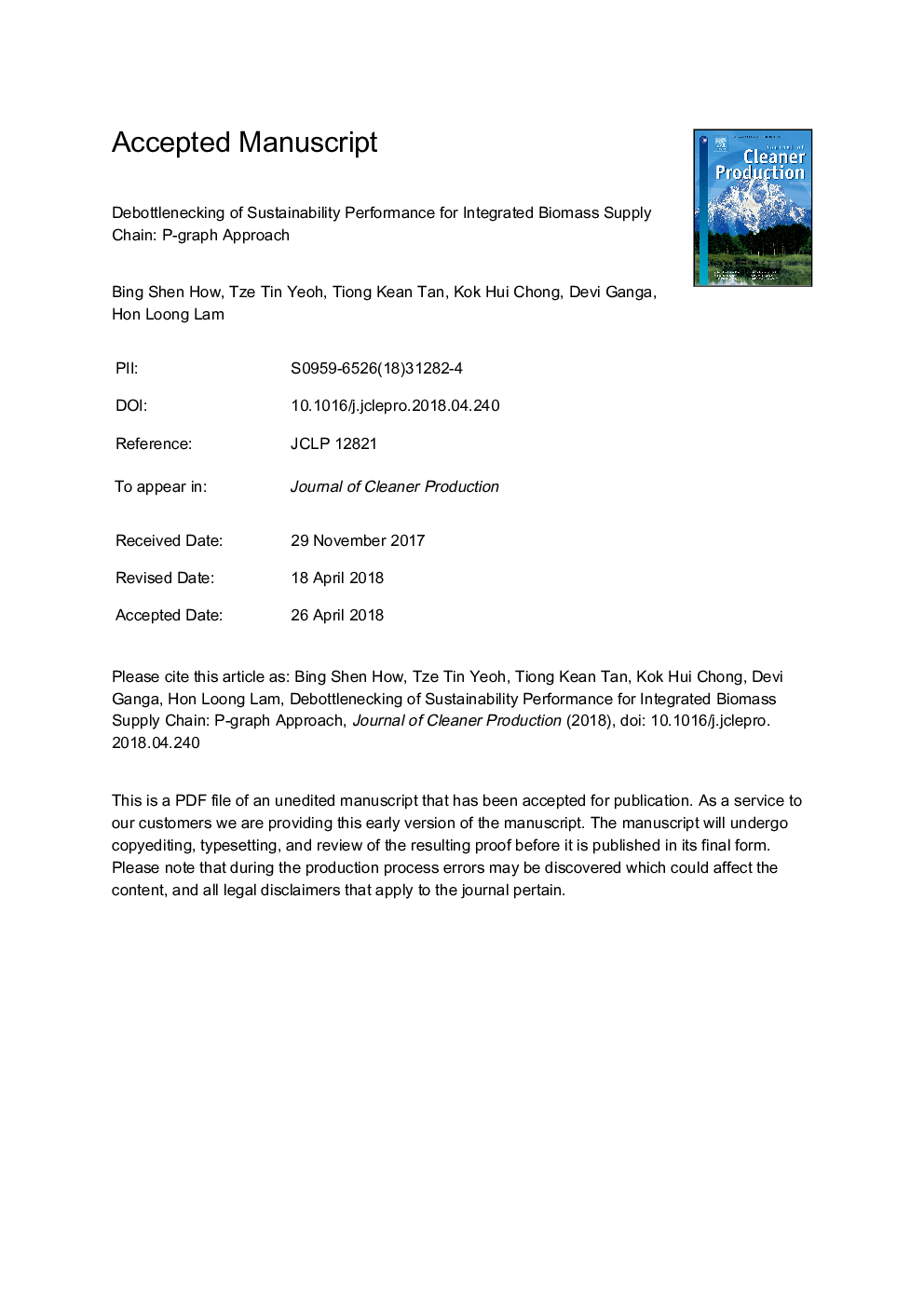| Article ID | Journal | Published Year | Pages | File Type |
|---|---|---|---|---|
| 8094653 | Journal of Cleaner Production | 2018 | 37 Pages |
Abstract
Biomass supply chain has been extended to cope with the growing concern on sustainability development and cleaner production. Process network optimisation is no longer sufficient to improve the biomass product life cycle. A comprehensive and systematic debottlenecking approach is required to identify and subsequently remove the underlying bottlenecks which hinder the biomass industry from attainment of sustainable paradigm. Therefore, this paper introduced a novel debottlenecking approach that incorporates P-graph framework and sustainability index (SI) to address the aforementioned issue. In addition, analytical hierarchy process (AHP) is applied to determine the appropriate priority scale for each sustainability dimension, including economic sustainability (annual revenue), environmental sustainability (pollutants emission) and social sustainability (safety aspect). Three different scenarios (palm oil mill effluent (POME) valorisation, oil palm frond (OPF) valorisation and biomass selection for gasification) which obtained from a Malaysia case study, are used to demonstrate the effectiveness of the proposed method. The results show that the proposed debottlenecking method is capable to identify the bottlenecks of the research problem easily and efficiently (i.e., all three scenarios show positive outcome since the satisfaction level of the given technology pathways or biomass option have been gradually improved after debottlenecking). On top of that, the strengths and limitations of the proposed method are also discussed in this paper. This research is expected to be beneficial to the nation's biomass industry in the development of biomass industry.
Related Topics
Physical Sciences and Engineering
Energy
Renewable Energy, Sustainability and the Environment
Authors
Bing Shen How, Tze Tin Yeoh, Tiong Kean Tan, Kok Hui Chong, Devi Ganga, Hon Loong Lam,
